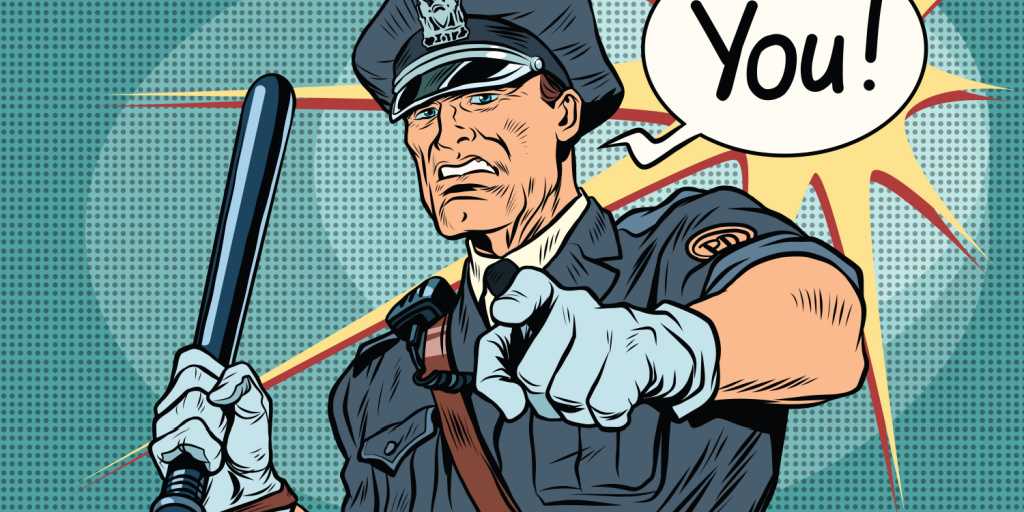Aggravated Assault in Arizona: Five Things You Should Know
In Arizona, “Aggravated Assault” charged under ARS § 13-1204 is a Class Four Felony, and in some cases with mandatory prison. Today, we’ll discuss some of the most common types of Aggravated Assault.
DUI & Motor Vehicles as “weapons”
First, a common type of Aggravated Assault Charge in Arizona is a Vehicular Assault by an impaired driver Pursuant to ARS §13-1204(a)(1) an assault becomes a felony where a victim sustains “serious physical injury” or there is “substantial disfigurement.”
So where there is a Drunk driving collision and someone gets seriously hurt, in addition to other charges, there can be an aggravated assault
But a vehicular aggravated assault charge can happen even where there is no serious injury or any injury at all. Pursuant to ARS § 13-1204(a)(2) an aggravated assault can happen where a person recklessly causes injury with a “deadly weapon or dangerous instrument. Courts have held that a motor vehicle can be a deadly weapon for purposes of Arizona’s Aggravated Assault statute.
Reasonable Apprehension Assaults: Deadly Weapons & Dangerous Instruments
Second, an Aggravated assault can also occur where the defendant puts the victim in “reasonable apprehension of imminent physical injury,” and doing so with a “deadly weapon or dangerous instrument.” Think of a defendant pointing a gun or wielding a knife in a threatening manner. Those are inherently dangerous in nature. But what about a car? What about a beer bottle, what about an ashtray? Arizona law says that a “dangerous weapon” can be any object which through use can be readily able to cause serious physical injury. There seems to be little or no limit.
Dangerous Offenses
Third, what’s worse, is most assaults committed with a “deadly weapon or dangerous instrument” qualify as “dangerous offenses,” where if charged probation is not available, even for first time offenders. We’ve seen cases where there is no contact, no injury, no words, but dangerousness is alleged. We’ve seen cases where there the “weapon” or dangerous instrument is a telephone receiver or ashtray.
Strangulation & Airway
Fourth, a separate type of aggravated assault is known as “Domestic Violence/Airway Restriction.” Thought of has strangulation cases, the statute is very broad and often used.
Domestic Relationship
In Arizona, a domestic partner may be a blood relation, a parent, child, sibling, but also a housemate or cohabitator, or someone who is the parent of the defendant’s child, and also someone who is in or has recently been in a “romantic relationship.”
Airway Restriction
No one needs to pass out, but only that their blood or airway is restricted to any meaningful degree even for a brief amount of time.
We have seen many domestic violence aggravated assault cases where there is arguably no airway restriction at all, of if it is it is de minimus
Spitting on a Police Officer
Finally, In Arizona an assault can occur without any injury. Pursuant to ARS 13-1203(A)(3) an assault can occur any time the defendant knowingly “touches” with “intent to harm, harass or provoke.” We has seen assaults where someone throws water at the victim, pokes the victim in the chest, grabs the victim’s arm, or spits at the victim.
What makes this a felony is the status of the victim. If the victim is a police officer, prison guard, teacher, a firefighter, a doctor or nurse, a prosecutor or public defender, that “touching” with “intent to harm harass or provoke” is a felony. The most common of the cases we see is spitting on law enforcement by a person either under arrest or soon to be under arrest.
Conclusion
I hope this short discussion has given you some idea of the contours of Arizona’s Aggravated Assault Statute.
Recommended Articles

Arizona’s new sealing statute is a powerful way for people who have been charged or convicted of many common offenses, to be able to say “no” in many instances.

In Arizona, “Aggravated Assault” charged under ARS § 13-1204 is a Class Four Felony, and in some cases with mandatory prison.

DUI or domestic violence police misconduct even if not resulting in grievous misfortune can sometimes provide a helpful remedy for the criminally accused.

people are surprised by how outsized the consequences some misdemeanor convictions can be. collateral consequences—meaning all those hidden consequences.

For thirty years two federal laws prohibited all those convicted of misdemeanor domestic violence offenses from ever possessing firearms.

About Michael Harwin
Michael’s skill and experience have been recognized repeatedly. He holds an A-V 5/5 preeminent rating by Martindale Hubbell. He has been named one of the top lawyers in Arizona by Southwest Superlawyers, and one of the best lawyers in Tucson by Tucson Lifestyle Magazine. He also has been named one of the best lawyers in the United States by BestofUS.com , and given the highest rating possible by AVVO, 10/10 Superb. Amazon Books


